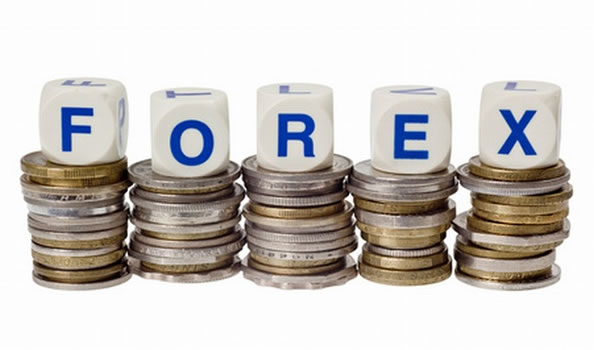Nigeria’s recent liberalisation of its foreign exchange (forex) market has been hailed as a turning point in the country’s quest to restore investor confidence, attract foreign capital, and strengthen its macroeconomic position. The wide-ranging reforms, spearheaded by the Central Bank of Nigeria (CBN) under Governor Olayemi Cardoso, aim to reduce market distortions, improve transparency, and create a stable environment conducive to long-term investments.
The forex market liberalisation involved the unification of multiple exchange rate windows into a single market-driven rate. Previously, the existence of disparate exchange rates—ranging from the official rate to the widely-used parallel market—led to arbitrage, discouraged foreign investment, and complicated economic planning. The reforms have reduced the gap between the official and parallel market rates to less than ₦2 per dollar, a major milestone that signals the end of multiple pricing regimes and boosts credibility.
One of the core objectives of the policy shift is to allow the naira to find its true value through market forces, rather than regulatory intervention. This realignment has made Nigeria a more predictable and attractive destination for investors who had previously been deterred by the country’s opaque forex regime. According to analysts, a unified forex market is a fundamental requirement for foreign portfolio and direct investors who value consistency, transparency, and ease of exit.

In response to the liberalisation, Nigeria has already witnessed a surge in capital inflows. According to CBN data, foreign portfolio investment in the country more than doubled in 2024, increasing by over 106% to reach $13.35 billion. This reversal of capital flight is a direct result of investor optimism that the country is finally addressing its long-standing structural challenges in the forex space. Additionally, diaspora remittances and export proceeds have increased, contributing to a more diversified inflow of foreign exchange.
External reserves have also seen notable improvements, rising above $38 billion—enough to cover approximately 10 months of imports. This buffer is vital in protecting the economy from external shocks, including oil price volatility, global financial tightening, or geopolitical disruptions. The healthier reserve position is another indicator that Nigeria is regaining the confidence of global markets.
To support the forex liberalisation, the CBN introduced several complementary measures. Among them is the adoption of an electronic forex matching platform that enhances transparency by allowing buyers and sellers of forex to transact more efficiently and fairly. The introduction of a new forex code and strengthened oversight mechanisms are also helping to prevent manipulation and increase accountability.
Monetary policy has also been tightened in line with global best practices. In a bid to curb inflation and stabilise the currency, the CBN raised the Monetary Policy Rate (MPR) by a cumulative 875 basis points in 2024, pushing it to 27.5%. While the tightening has posed challenges for domestic borrowing and consumer spending, it has sent a strong signal to investors that the bank is serious about restoring macroeconomic stability.
Governor Cardoso has repeatedly stated that Nigeria’s monetary policy is now focused on orthodoxy and discipline. He emphasised that the CBN will not return to the era of arbitrary interventions and that current reforms are necessary to reposition the economy for sustainable growth. His stance has been echoed by the International Monetary Fund (IMF), which projects that Nigeria’s economy will grow by 4.17% in 2025, buoyed by the reforms introduced by the Bola Tinubu administration, including the removal of fuel subsidies and market-based forex rates.
The improved sentiment has not gone unnoticed by credit rating agencies. Fitch Ratings recently upgraded Nigeria’s outlook, citing the government’s willingness to adopt difficult but necessary reforms. Similarly, foreign investors have started re-engaging with Nigerian assets, particularly in the bond and equities markets, where yields remain attractive compared to peers.
Despite the optimism, challenges remain. Inflation continues to be a pressing concern, with food prices and transport costs remaining elevated. The IMF forecasts that inflation will remain above 25% in 2025, a level that continues to erode real incomes and consumer purchasing power. Structural issues such as inadequate infrastructure, unreliable power supply, and bureaucratic bottlenecks also persist, and could dampen the full impact of forex liberalisation.
Furthermore, concerns about the naira’s future trajectory remain. The African Development Bank (AfDB) has projected that the currency could depreciate by at least 6% over the next year due to global financial volatility and lingering domestic imbalances. While a flexible exchange rate policy helps in absorbing shocks, it also exposes the economy to sudden swings if not backed by strong fundamentals and consistent policies.
In rural and informal sectors, the transition to a liberalised forex regime may have less direct impact in the short term, but its effects will be felt over time as inflation stabilises, investment increases, and jobs are created. To ensure inclusive growth, the government must complement its forex reforms with targeted support for small businesses, agriculture, and technology-driven sectors.
In conclusion, Nigeria’s forex market liberalisation is a bold and commendable step that signals a new direction for the economy. It is laying the groundwork for increased investor confidence, improved forex inflows, and a more stable macroeconomic environment. However, for these reforms to deliver lasting benefits, they must be sustained and supported by broader economic restructuring, institutional reforms, and social safety nets to protect the most vulnerable segments of society.
Support InfoStride News' Credible Journalism: Only credible journalism can guarantee a fair, accountable and transparent society, including democracy and government. It involves a lot of efforts and money. We need your support. Click here to Donate
